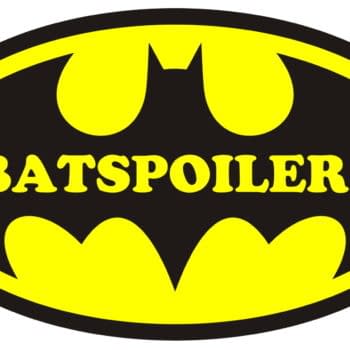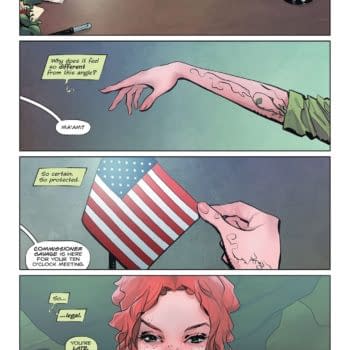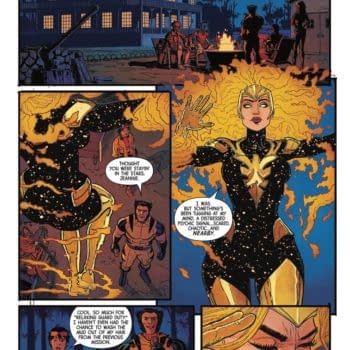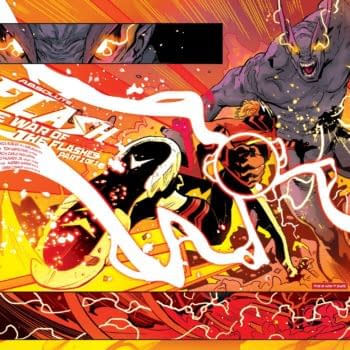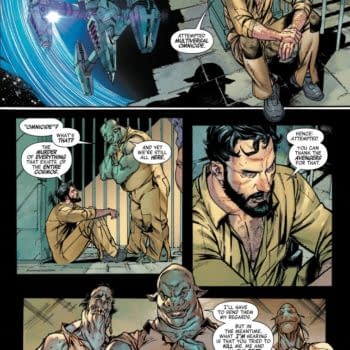Posted in: Comics | Tagged: carol tilley, cbldf, charles brownstein, Comics, comics code, NYCC, Wertham
Knowing The Enemy: Wertham, Censorship And The CBLDF
From left: Charles Kochman, Editorial Director, Abrams ComicArts; Dr. Carol Tilley, Associate Professor, GSLIS, University of Illinois; and Charles Brownstein, Executive Director, CBLDF
Ray Flook wrote from New York Comic Con for Bleeding Cool;
Like many die-hard comic book fans, for a long time I felt I already knew everything I needed to know about Dr. Fredric Wertham: he was a conservative "nut-job" who went after the comic book industry in the 1950's for being a negative influence on the nation's children. A unified comic book industry wasn't able to withstand the Senate investigations, resulting in the government shutting down publishers like EC Comics and creating the Comics Code Authority.
Over the years, I realized that this time period in comics history was never as "black-and-white" as it seemed; and it was those "gray areas" that makes this slice of history an even more timely subject for discussion today. To that end, the Comic Book Legal Defense Fund (CBLDF) hosted a panel entitled, CBLDF: The Secret Origins of Comics Censorship!", moderated by Charles Brownstein, Executive Director, CBLDF; and featuring an academic /historical overview by Dr. Carol Tilley, Associate Professor,
GSLIS, University of Illinois; as well as additional comments from Charles Kochman, Editorial Director, Abrams ComicArts.
While the majority of the hour was turned over to Dr. Tilley's presentation, some time was set aside towards the end for questions/comments from the audience though it served mainly to re-emphasize one of the themes of the program (and you could say the CBLDF): sometimes the attacks on free speech and free expression come with the best intentions, so everyone needs to remain vigilant. I found the presentation itself to be the heart of the hour; while nothing that was discussed could be considered "breaking news," we were given the chance to move beyond the assumptions and stereotypes and get to the truth. During the overview, we learned that…
● Early in his career, Dr. Fredric Wertham authored an article detailing the negative effects of segregation that was used in the landmark Brown vs. Board of Education case that led to segregation being found to be unconstitutional; and opened The Lafargue Clinic in Harlem, a low-cost psychiatric clinic specializing in African-American teenagers that was financed by voluntary contributions.
● SUPERMAN co-creator Jerry Siegel penned letters to both Dr. Wertham and F.B.I. Director J. Edgar Hoover, alleging that the entire comic book industry was involved in corrupting children and conspiring with journalists to print pro- industry propaganda. He also sought their help against National Comics (eventually DC Comics), who he felt treated him shabbily personally, professionally and financially over his deal involving rights to the SUPERMAN character.
● Carl Barks, famed "Donald Duck" cartoonist and creator of "Uncle Scrooge McDuck," was not a fan of EC Comics.
● The Comics Code Authority (CCA) Code was self-created by the comics industry as a way of showing the U.S. Government that the industry could regulate itself, and was not mandated by the government. Despite the wide scope of the hearings and the extent of the investigations, no federal legislation was ever passed to regulate the content of comic books in the United States.
● Dr. Wertham was unofficially approached to become the "czar" of the CCA. Comic publishers believed this was an excellent way to help the Code be seen as legitimate; as well as being seen as extending an "olive branch" to Wertham and others to curtail future investigations and potential legislation. Unfortunately for the industry at the time (but fortunate for the long-term viability of the comic book industry), Wertham had no interest: he viewed the CAA as nothing more than propaganda from the industry, and wouldn't legitimize its existence by associating with it in any way.
● Bill Gaines was one of the first proponents of the industry coming together to fight censorship and to repair the reputation of the industry as a whole. To that end, they created the Comics Magazine Association of America (CMAA); and with that, the CCA Code. Gaines would end-up being a victim of his own idea: in protest to the restrictive Code being enforced by the CMAA, Gaines refused to join the association. New rules were added to the Code, including one that struck at the heart of Gaines and EC Comics: no comic book title could use the words "horror" or "terror" or "weird" on its cover. Gaines was forced to change or cancel titles when distributors refused to carry his comics, but the days of EC Comics were coming to an end.
● Public access to Dr. Wertham's papers wasn't available until 2010, through The Library of Congress. Until that year, access was only granted to those approved by Wertham's estate.
An incredibly informative panel/lecture that should be "required viewing" for anyone who considers themselves a comic book fan or a history buff, the CBLDF did an excellent job of using the past to emphasize the importance of what they continue to do today: protecting the First Amendment rights of the comic industry in all its forms. Through Dr. Tilley's presentation, an important point came through: for free speech to remain "free," we ALL must remain vigilant to react when it's threatened and fight to defend it…even when it's something we may not like ourselves.








